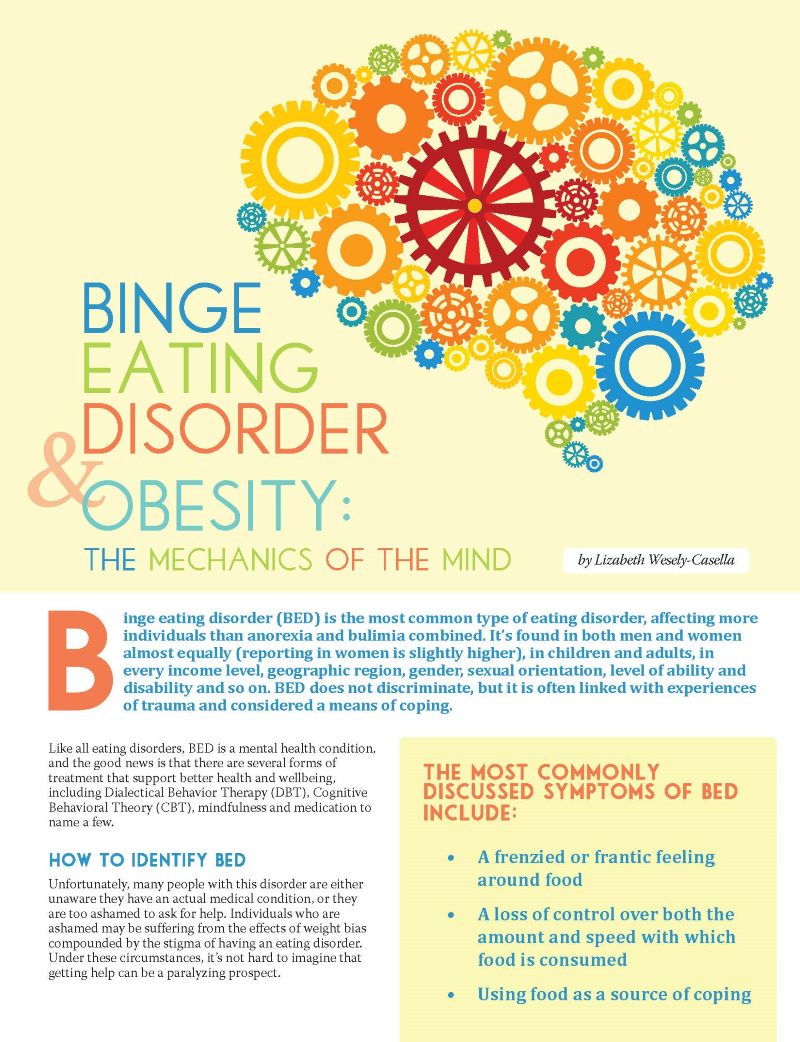All about Eating Disorder Recovery
Table of ContentsThe Single Strategy To Use For Eating Disorder RecoveryThe Ultimate Guide To Eating Disorder RecoveryIndicators on Eating Disorder Recovery You Should KnowTop Guidelines Of Eating Disorder Recovery
Repeated and incorporated practices like these might be an indicator of an eating disorder and ought to be kept an eye on. An individual's mood and just how it is presented or revealed (influence) can give some additional insight right into the possibility that they are experiencing an eating condition. Indicators to look out for consist of: social withdrawal or seclusion; rapid adjustments in mood; boosted anxiousness; and/or high levels of control or obsessionality (which may or might not be connected to food or the body).For instance, someone can be mad even if their exterior behavior does not match what they really feel (eating disorder recovery). While this might hold true for everyone every so often, this incongruence might be much more obvious in people with eating conditions. Modifications in social behaviour such as somebody that was previously social beginning to avoid going out with other individuals may be specifically telling if the pattern includes a lot of or every one of the individual's social assistances, as well as if there is little else that would certainly much better clarify the change.
These lists are not extensive, but are meant to offer you with domains for consideration. Noticing a few of the indicators might not be a reason for issue. It's when these changes start to come to be stressful or disruptive to the individual or to individuals around them that closer interest ought to be paid.
These discussions are not always very easy. You might be unclear about when as well as where to begin or what to say. Those are totally normal as well as valid issues, as well as they may be come with by concern, irritation, complication or sensation helpless or powerless. These sensations are essential as well as might form component of the discussion you have.
Eating Disorder Recovery Can Be Fun For Everyone
Your main objective, as an example, might be to merely 'examine in' with your loved one to see if there is anything you can do to support them generally. Depending on the direction of conversation, you may then be able to share problem about current changes in practices or attitudes, consisting of those pertaining to food.
Keep in mind that these conversations take time, may need to be had numerous times, and also may not constantly have a clear outcome. This is completely OK; it is necessary to keep your very own assumptions practical. Bear in mind the following points to help you help with the discussion: Usage non-judgmental and non-blaming language.
The reality that you are ready to use support if they desire it can be valuable for them to understand, now or in the future. Attempt to stay clear of believing as if the individual is the eating condition.
Just as an ailment such as cancer cells does not specify that a person is, an eating condition must not be seen that method either - eating disorder recovery. Attempt to get the individual to their basic specialist or another qualified health and wellness professional (such as a professional psycho therapist) for an evaluation.
Eating Disorder Recovery for Beginners
Don't try to provide a simplified option. Instances of what not to state include 'Simply consume, you'll feel better' as well as 'Just don't stress over your body.' Individuals with an eating disorder do battle with eating and also do feel terribly regarding their body, yet the factor is to obtain them the aid they require to recover, which isn't as easy as suggesting that their reasoning or practices is wrong.
Blaming on your own for someone's eating condition or criticizing that person is unhelpful why not try these out to everybody. Stick to routines as well as rules for all members of a household, rather than singling out the person that could have an eating problem.
Look for specialist help. The very best time to seek professional support is as soon as you understand or think something is wrong. You can start by speaking with a general professional, paediatrician or various other wellness professional you trust to discover more regarding eating problems, obtain their viewpoint, or develop a prepare for just how to assist get your enjoyed one to see an expert.

An Unbiased View of Eating Disorder Recovery

Remember that, while the path in advance of you can sometimes feel separating, you are not the only one in navigating this difficulty. Like your liked one, you as well are finding out about managing the possibility of an eating condition. Take a minute when you can to breathe, process and also concentrate on establishing one foot before the various other.
We all need to consume, and also the majority of us expect eating. Greater than beneficial our bodies, food is frequently a large part of obtaining with each other with individuals we like. Indeed, it's hard to picture what life would be like without the several gatherings we have built around sharing food.
Left untreated, eating problems can cause significant repercussions like organ failureor even death. There are various sorts of eating disorders, and some people may this content experience signs of greater than one disorder. One of the most common consuming problems are: A condition identified by calculated efforts to severely limit food consumption (regardless of low body weight), frequently to the factor of medical starvation.